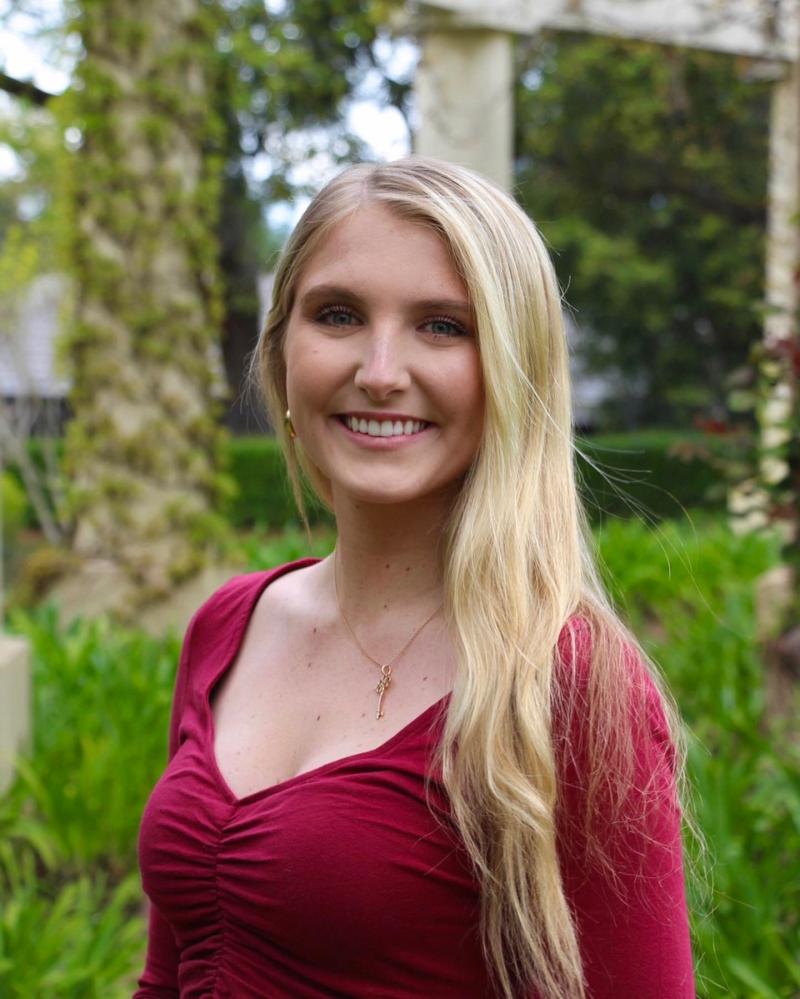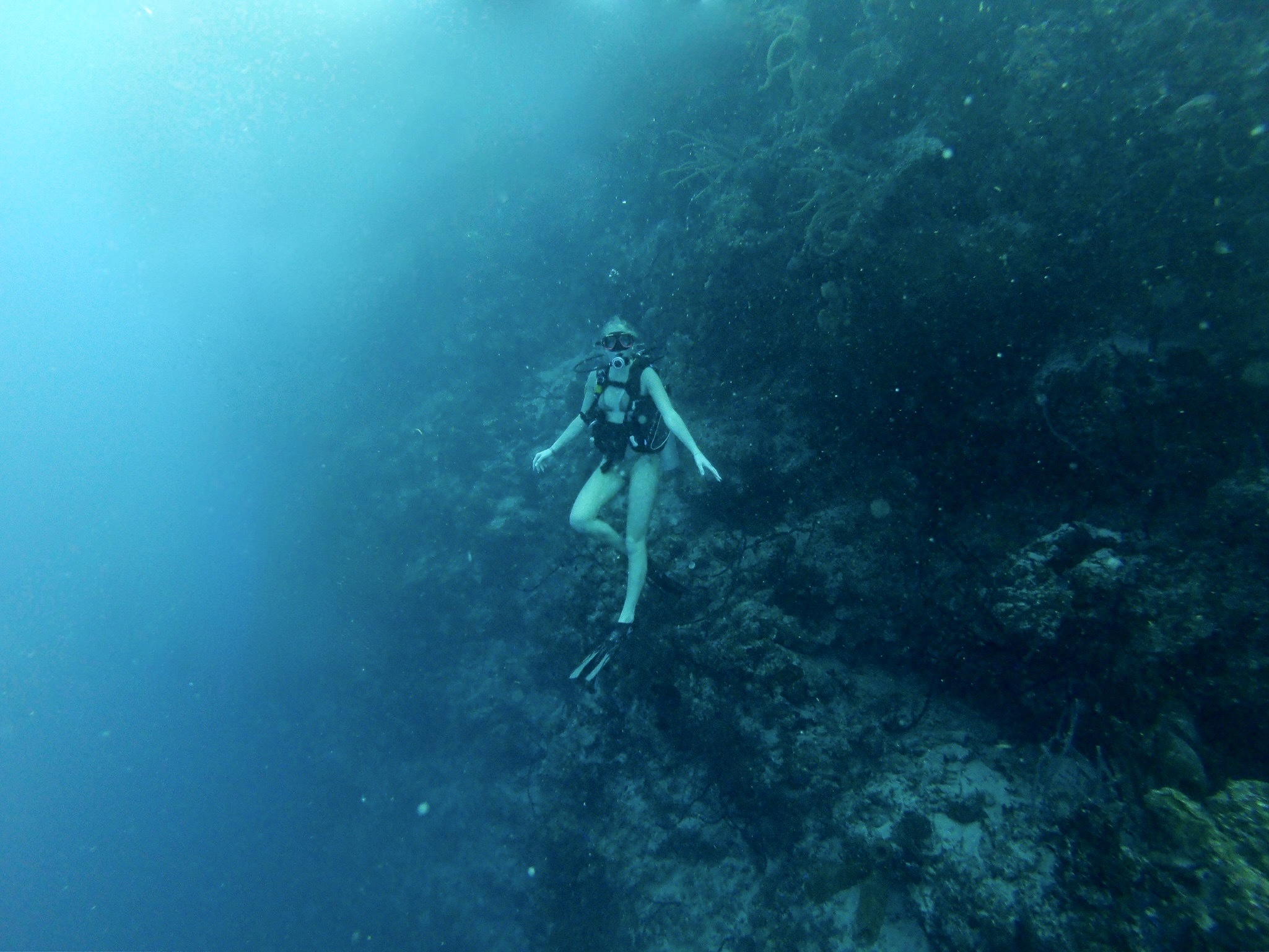
Our first spotlight of 2024 shines on Nicole Liddle, a senior clinical research specialist in the lab of Greg Cogan, PhD. Liddle talks to us about the joys and challenges of her work helping the Cogan lab refine our knowledge of the brain to improve surgery for epilepsy. She also shares her passion for neuroscience and her hopes for a career exploring cognition and sensory information processing at different scales in the brain. Finally, Liddle talks about her hobbies of scuba diving, volleyball, and exploring the sea cliffs of California (and Durham’s foodie scene) when she’s not at Duke.
What are your current responsibilities within the Neurology Department and the Cogan Lab? What does a typical day look like for you?
As a Senior Clinical Research Specialist at the Cogan Lab, my role encompasses a dynamic array of responsibilities across the research lifecycle that ensure each day is unique and engaging. My duties range from hands-on data collection with in-unit patients at the hospital for our studies on language cognition, to administrative management of participant recruitment, consent, payment, and clinical IRB documentation.
Outside of research procedures, my primary responsibility is preprocessing our behavioral and neurophysiological data and localizing electrodes for each subject to conduct the analysis we use to decode their neural responses during speech perception and production.
How long have you worked at Duke? What kind of work were you doing before you came here, and how does that work compare to your current position?
I recently started this position in September, so I am new as of four months ago and have thoroughly enjoyed every minute of it so far. In the year between my graduation from Dartmouth and coming to Duke this Fall, I was living in New York City doing neuroscience research on brain-computer interfaces (BCI) and other neuromodulation techniques aimed to treat various neurological conditions. That was also a wonderful and valuable experience that I feel prepared me for this role, which is a more comprehensive immersion into clinical research working directly in the hospital setting.
What research projects are you currently involved with in the Cogan Lab, and how will that work help us better understand or treat epilepsy (or related conditions)?
Our current research projects are aimed at understanding the specific brain regions and neural substrates involved in speech perception and production, to help people with a variety of neurological conditions that affect language. For epilepsy, our intracranial data is intended to help inform and refine resection procedures of seizure onset zones that are often found near language regions, to help surgeons avoid removing critical speech areas and preserve language functionality as much as possible.
Our other project is a collaboration with the Viventi Lab, which uses a high-density micro-ECoG grid to record microscale neural speech activations. In addition to measuring language responses, the extremely high resolution recording capability of this grid is able to detect microseizures and microscale high-frequency oscillations in patients with epilepsy, which provides valuable insights into underlying seizure activity.
You can read about this work in epilepsy here and here.
What do you enjoy most about your work?
I truly enjoy every aspect of my job. It offers valuable firsthand experience in a range of areas where I can develop essential skills as a young researcher, in an environment which fosters growth and promotes learning. I am surrounded by highly intelligent, ambitious, and supportive people, and am given the independence to take pride and ownership over my work.
Another favorite aspect of mine is the human-centric nature of this role and having the chance to interact directly with patients. Meeting people whose lives could be improved by our research is a profound reminder of the ultimate reason why we do it, and the commitment from participants to helping others in the future is another heartfelt testament to our greater collective purpose.
Overall, I feel immense pride and gratitude to be a part of the Duke Health community, and plan to continue leveraging the opportunities for growth and appreciation that each day brings.
What’s the hardest part of your job?
I would say that the most challenging, while also most exciting, aspect of my job thus far has been the steep learning curve of taking on such a wide array of key responsibilities. In order to successfully conduct high-level complex research, each component requires an equal degree of technical precision. Given that my role governs the clinical process from start to finish, it is crucial that I uphold strict operating procedures to ensure that the cycle runs smoothly. The weight of every small detail is magnified for human intracranial research, as is the need for my thorough understanding and diligent execution of each one along the way.
In addition, the data processing side of my role has required me to learn advanced new skills that are specific to our pipeline, that must be done precisely in order to generate accurate results. It has been an enriching challenge, immersing myself in an entirely new series of tasks and data to be analyzed, and the transformation of my capabilities as a result has been tremendously rewarding.
What plans do you have for the future? If you could have any job in the world, what would it be?
Next fall, I plan to apply to PhD programs in neuroscience, to explore cognition and sensory information processing at different scales in the brain. Understanding the mechanisms that construct our interpretation of reality to apply that knowledge and teach it to others is my deepest passion, and the pursuit of becoming a researcher with a lab of my own and a professor who can someday inspire young professionals like myself is my greatest driving force. Knowing that each day I get closer to living that dream brings me profound joy and excitement for the road ahead, just as it brought me here to Duke today.
What other passions or hobbies do you have outside of Duke?
I was on the volleyball team at Dartmouth, so it has been a prominent part of my life for nearly a decade. I took a break after graduating, but have recently started playing again with some friends on the weekends here which has been great! I am also a big scuba diver, and my long-term goal is to make it out to as many dive spots as I can around the world; my most recent location was the Great Blue Hole in Belize, which I highly recommend.
I go to the ocean whenever possible, being from the coast of northern California, and spend much of my time at home on the sea cliffs. My more practical hobbies include finding new good music and the best local restaurants, which has been fun in Durham having so many great options to choose from.
